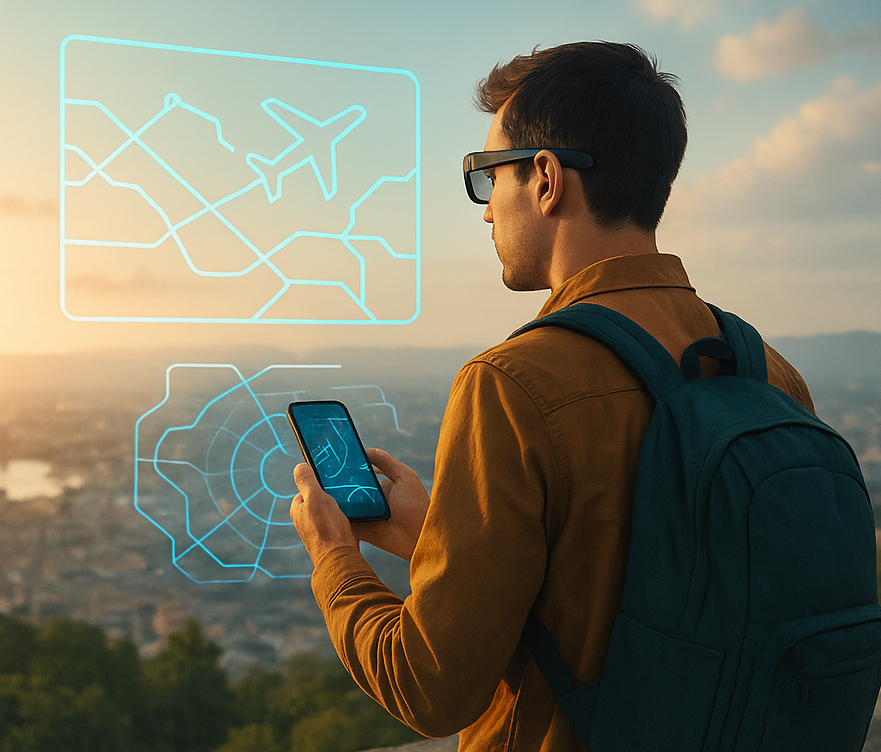Travel has evolved far beyond paper maps and guidebooks. Today’s explorers use smart travel technology not just to plan trips — but to personalize every step of the journey. From AI-powered itinerary apps that learn your preferences to digital passports and real-time translation tools, the modern traveler is more connected and informed than ever before.

Smart travel means efficiency and discovery working hand in hand. GPS navigation ensures we never get lost, digital boarding passes reduce airport stress, and language apps break down communication barriers instantly. Even wearable devices now track jet lag recovery and optimize sleep cycles across time zones.
But it’s not just convenience — technology has made travel more sustainable too. Electric rental cars, digital check-ins, and paperless hotel systems reduce environmental impact, while social media and travel platforms make global cultures more accessible and appreciated than ever.
Another major innovation shaping smart travel is the rise of AI-powered personalization. Apps now analyze your preferences, past trips, and even your mood to craft itineraries that feel tailor-made. Imagine landing in Paris and instantly receiving local restaurant recommendations that match your taste profile, or booking excursions that fit perfectly between your scheduled meetings. The same technology also predicts crowd levels at attractions, helps avoid tourist traps, and identifies hidden gems you might have missed otherwise — all in real time.
The future of travel is also becoming hyper-connected and immersive. Virtual and augmented reality are now being used to preview destinations before booking, offering 360° tours of hotels, trails, and landmarks. Digital translation lenses and wearable devices turn foreign travel into a seamless experience, allowing travelers to interact authentically with locals without language barriers. This tech-driven empowerment is reshaping what it means to explore — travel is no longer about just going somewhere new, but experiencing it in ways that were once impossible.
The result? A world where exploration is no longer limited by borders, language, or logistics — only by curiosity.
Final Thoughts: The Future of Exploration Is Digital and Personal
As travel continues to merge with technology, the world feels both bigger and smaller — vast in possibilities yet effortlessly within reach. Smart tools are removing barriers that once made exploration intimidating, allowing anyone to travel farther, safer, and smarter than ever before. But the heart of travel remains the same: connection. Whether you’re using an AI assistant to navigate Tokyo’s streets or tracking your carbon footprint across continents, the goal is to experience the world more deeply, not just efficiently. The next era of travel isn’t about replacing adventure with automation — it’s about using innovation to bring us closer to the world, and to each other.

